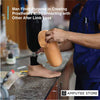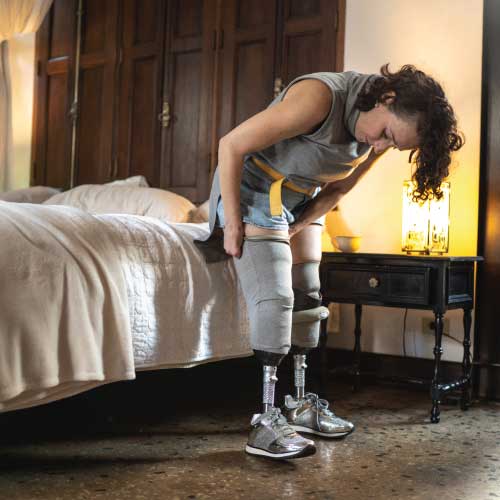Do You Think About Every Step? A Study Looks for a Better Way
For many lower-limb prosthesis users, thinking about their every step is a part of life. However, this puts them at a higher risk of tripping and falling as they cannot pay attention to the environment. Because of this, researchers seek to understand a prosthesis user’s mobility better and apply the findings to explain the advantages of microprocessor-controlled knees.

The study is led by Benjamin Darter, Ph.D., an associate professor in the Virginia Commonwealth University (VCU) College of Health Professions’ Department of Physical Therapy. In 2021, he received a $1.97 million grant from the U.S. Department of Defense to support his project, “Exploring the Impact of Microprocessor-Controlled Knees on Prosthesis Awareness and Overall Health.”
Darter collaborates with the Hanger Institute for Clinical Research and Education and the University of Washington to develop a benchmark evaluating how much people with lower-limb loss need to attend to their prosthetic device while walking. Furthermore, the project will study how the need to pay attention changes when a person uses a prosthetic limb with a microprocessor-controlled knee.
In an interview with VCU News, Darter explained that the more a person needs to pay attention while using their prosthetic device, the less aware they are of other things, like navigating uneven terrain and a busy and crowded area or carrying objects while walking. The sensory overload they can experience during these moments puts them at higher risk for tripping and falling.
Furthermore, Darter explained that, in theory, microprocessor-controlled prosthetic limbs allow the device to do more work for the person. However, as people study these advanced prosthetic devices, they realize that the measures of how performance is evaluated “haven’t always shown that these new devices are better than the older” ones.
Although clinicians currently have numerous options for evaluating patients’ physical capabilities when using their prosthetic limbs, Darter said there is still a need to develop measures for assessing other function elements. This new benchmark could help demonstrate how technological advances benefit prosthesis users.
The research team hopes the measure developed during this project will help clinicians better understand the walking ability of patients with lower extremity amputation.
The team is currently looking for study participants. If you are a lower-limb amputee, have been using a prosthetic device for at least six months, and are over age 18, you may call (804) 628-3594 or email amplab@vcu.edu.











































































